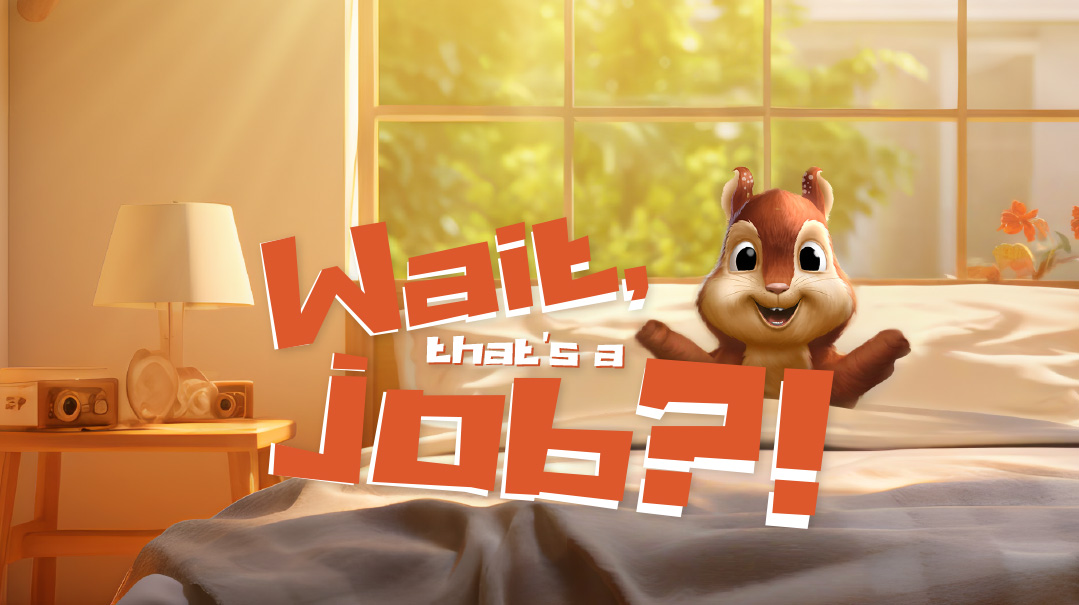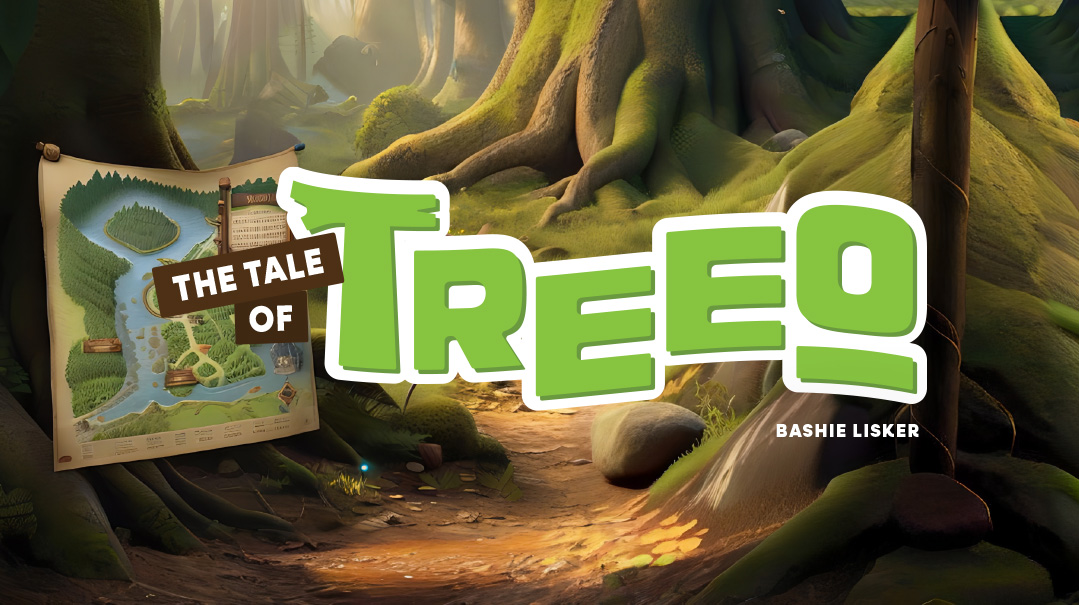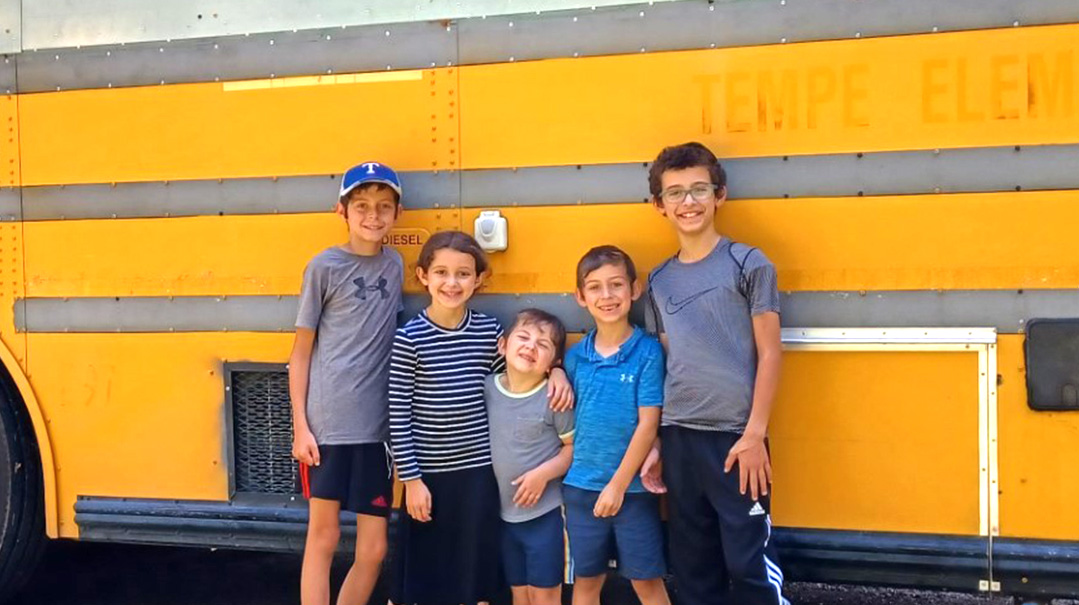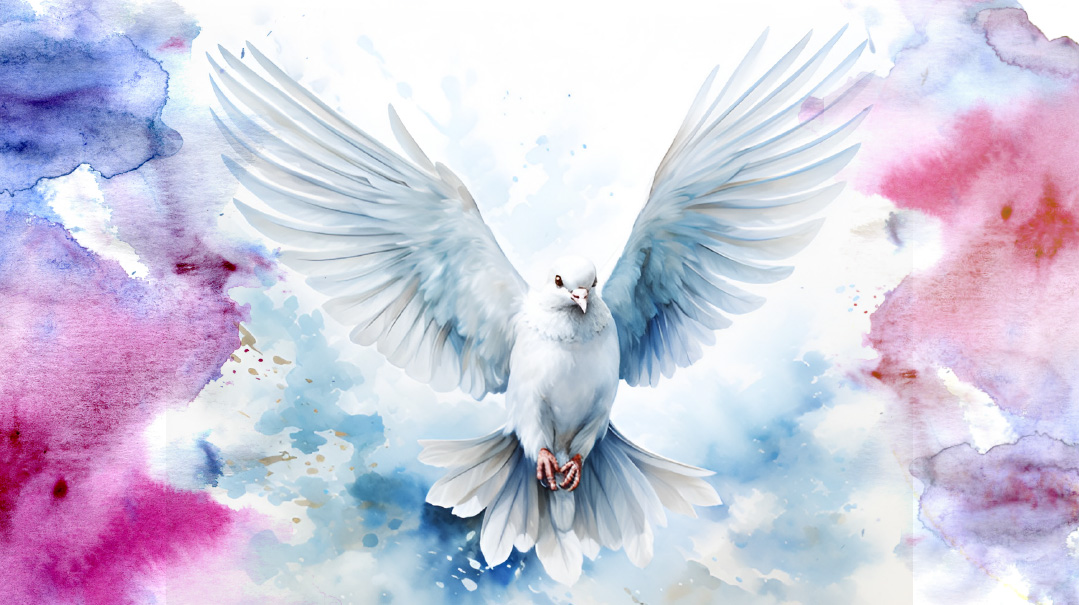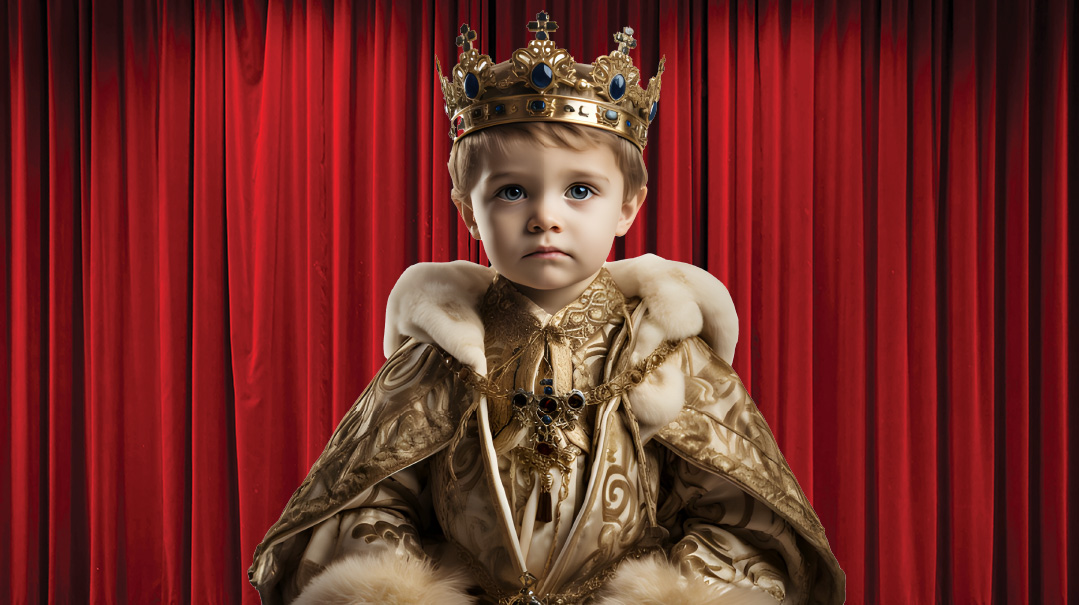A Visit from Mordechai Shapiro
| September 26, 2023“If you have a good voice, it’s a gift from Hashem and a responsibility”
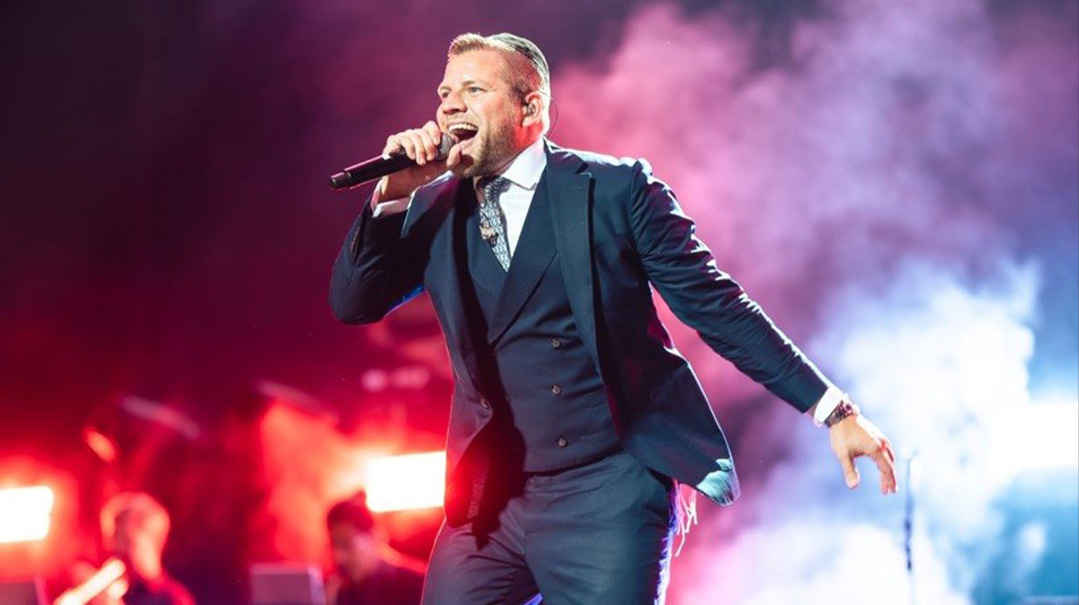
Succos is a time for v’samachta b’chagecha. Can you tell us a bit about how you got started in the music industry?
I’m the youngest of a very musical family. My father served as the chazzan in our town for Rosh Hashanah and Yom Kippur, and my mother trained as a singer. As you can imagine, our Shabbosim were filled with beautiful zemiros. When I was eight, I joined the Miami Boys Choir together with my older brother Duvie. This meant a two-hour drive into Brooklyn, a ride my mother undertook with dedication. It was meaningful to her for us to commit to music, and because of that, it became something meaningful to us as well.
The Miami Boys Choir
Joining the Miami Boys Choir brought unforgettable moments and meaningful friendships into my life. We were a diverse group, all coming from different communities and backgrounds. Some boys were Modern Orthodox, some were chassidish, Litvish, Sephardi, and it honestly didn’t matter. We weren’t connected by who we were and what we did. We were connected over what we believed in, and that was the music of Hashem. I still keep in touch with some of those friends, even after 20+ years. We had incredible experiences together, like our trip to Mexico and Universal Studios in LA, that I can’t forget. That being said, it wasn’t always easy. My entire Sunday was reserved for choir practice since it took two hours to travel to Brooklyn, another two hours for the practice itself, and then two hours to get back. While my friends were enjoying Little League or birthday parties, I was either at choir practice or singing at a show.
Choir Days to Center Stage
I continued to create and sing songs on my keyboard as I aged out of the choir. I knew singing would be part of my future; I just didn’t know how or when. I was determined to do anything to give it a shot. After I got married, I started from the ground up, schlepping my equipment and singing at engagement parties and bar mitzvahs. I was pretty successful, but it wasn’t what I wanted to be doing long-term. I wanted to put out my own material. I started telling people I was a singer, and begged them to let me sing at weddings, but no one believed me. It wasn’t until after I stopped doing small gigs that anyone gave me a chance. Soon after, performing at weddings became my main parnassah. Motivated by that, I decided I wanted to put out an album. I took out a large loan, which was super risky at the time, but something I knew I had to do in order to have a chance at performing and inspiring. Baruch Hashem, my first album, Kol Haderech, became an instant hit and I was able to pay back the loan within the year. It was then that my journey as an artist really started.
A Day in My Life
I get up early to daven before sending my kids to school or camp. Afterwards, I dedicate some time to learning before heading to the studio. When I’m immersed in a music project, I can spend up to twelve hours there. On days when I’m not in the studio, I concentrate on exercising, creating new songs, and going to voice lessons. Often, my nights are busy with performing at weddings or concerts. Although my job doesn’t have a fixed schedule, I try to have some semblance of routine.
My Music Role Models
Avraham Fried, Mordechai Ben David, Yaakov Shwekey, and Benny Friedman are singers I really admire. While the music industry seems very glorious, many people don’t see the challenges that come along with it. Consistently coming up with new ideas and concepts, living on the road, and sacrificing family time to perform over Yom Tov and at concerts is hard. These singers have been doing it with such class for years. It’s incredible, and I look up to them for that.
The Story Behind the Songs
I’m so grateful for my songs that have become popular. Friends, B’yachad, Achas, and Hakol Mishamayim are a few which have really gone viral. Every one of my songs is born from a special place, with a specific message that I’d like to convey, but there are a few in particular that mean a lot to me.
B’yachad, for example, was created for Yachad, an organization that supports individuals with disabilities. The song recognizes that while we each have our own likes and dislikes, “our differences don’t count…let’s make the world a better place.” At the end of the day, we’re all brothers and sisters and sing b’yachad.
Another song that has a special place in my heart is Achas. I wrote it two years ago in Elul. At the time, I was going through some personal challenges and having a hard time connecting to tefillah. One day while I was saying L’David Hashem Ori in Shul, I noticed the message of the tefillah. In it, David Hamelech lists all his challenges, but then says, “Achas Sha’alti.” Hashem, putting everything else aside, no matter what difficulties I’m facing (whether it’s a friendship, family, parnassah, or health struggle), I only have one request: “Shivti B’veis Hashem.” Hashem, let me sit with you all the days of my life. The words hit me, and I ran home to my piano to create the song.
While recording Hakol Mishamayim, I changed my mind about the chorus. Even after three hours of recording in the studio, it just didn’t feel right. I asked the sound engineer, Doni Gross, to delete everything. I remember him telling me, shocked, “What are you talking about? We just recorded for three hours! You want to delete everything?” But all songs come from your neshamah; it has to feel right. I ended up redoing it differently, right there and then.
Inspiring Music Moments
As I put out music, I learn the power it has to uplift people, whether it’s during a tragedy or by a fun dance party. One touching story comes from an eight-year-old girl in London named Rachel. She wrote to me to share how she was inspired by the song I sang on Journeys 5, titled Nothing in Your Life. The lyrics “Nothing in your life will ever be more meaningful than giving of yourself to help another” touched her so deeply that she decided to donate her hair to a neighbor who was suffering from cancer. The story and the realization of the power and impact of music gave me tremendous chizuk.
Another heartfelt story came from a girl who lost her father during Covid. She shared that listening to my songs, Ein Od Milvado and Hakol Mishamayim, were what got her through those days. It’s these moments that remind me how powerful music really is.
To Aspiring Young Singers
If you have a good voice, it’s a gift from Hashem and a responsibility. You can use it to lift Yidden up and give back to the world. It’s important to try to strengthen, practice, and focus on enhancing what you’ve been bentshed with. This isn’t just about our voices; it applies to every talent Hashem gives us. We’re just a vessel and we want to give just like Hashem, the ultimate giver. If singing is your passion, go for it! I recommend voice lessons or an instrument to keep your mind working musically. But the most important thing you need to have is the desire to share a message with the world.
My Most Powerful Lesson
Music’s power is beyond anything I could have ever imagined. I always knew what it could do for me, and coming from a musical family, I knew it could boost me up and bring me joy. What I didn’t know was the extent the power of music could have on the world and each individual. It’s the language of the neshamah. I once heard that the yetzer hara has an easy time distracting us during davening but gets confused when we daven with shirah. It’s a pleasure to be able to see that in real life, and an honor to be able to impact the world through it in such a positive way.
Fun Facts:
I still get nervous before going on stage!
Favorite Food: hotdog with mustard, sauerkraut, and coleslaw
I once ripped my pants on stage and had to be careful for the rest of the concert.
(Originally featured in Mishpacha Jr., Issue 980)
Oops! We could not locate your form.

